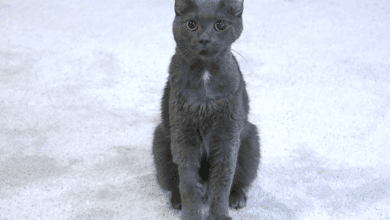Research team discovers why sprayed cat pee smells so unpleasant

Although few creatures are as charming as the domestic cat, some “mark their territory” by raising their tail and spraying urine on walls.
To make matters worse, sprayed cat urine has a particularly atrocious odor – even stronger than regular cat pee, even though the chemical composition is almost identical.
While this riddle would make most people hold their noses and run for the door, a team of researchers from Iwate University decided to solve the mystery of why sprayed cat urine smells so terrible.
The answer, apparently, comes down to a protein that helps cat urine spread over large areas and stick to surfaces.
Professor Masao Miyazaki of Iwate University’s Faculty of Agriculture, graduate student Reiko Uenoyama and other project members published their findings in the online edition of the US Journal of Chemical Ecology.
“There was a theory that the chemical components of sprayed urine were different from those of normal urine, but by comparing and analyzing the urinary compounds, we discovered the real reason behind the odor of sprayed urine,” Uenoyama said.
According to the team, no previous report has adequately analyzed and compared the odor compounds of sprayed and normal cat urine.
When researchers collected sprayed and normal urine samples from seven cats for comparison, they found no major difference in the chemical composition of the odors.
The cats were also unable to recognize the difference between the two samples.
Researchers found that the main difference between the two is the size of the area wetted with urine.
Normal urine has a less pungent smell because it is concentrated in a small area and immediately covered by sand or dirt, which trap odor compounds in the particles.
The researchers also discovered a new property of kauxin, a protein found abundantly in cat urine: it reduces the surface tension of the liquid.
Kauxin causes strong odors, but more importantly, by lowering the surface tension of urine, kauxin makes it easier for the foul-smelling liquid to spread and stick to solid surfaces, thus emitting its distinctive odor over a wide area.
While this protein may be a major evolutionary development for cats, which spray urine to mark their territory and communicate with other felines, it poses a problem for cat owners.
“We hope that our findings will contribute to eliminating this odor in the future,” said Uenoyama.




